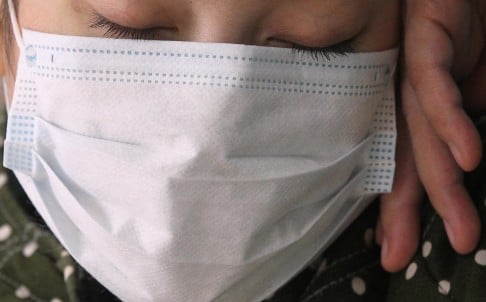- Joined
- Jul 20, 2012
- Messages
- 138
- Points
- 0
Flu-hit hospitals at critical mass with intensive care units 95 per cent full
Doctors forced to work 24-hour shifts with packed intensive care units now almost at capacity
PUBLISHED : Sunday, 08 February, 2015, 4:04am
UPDATED : Sunday, 08 February, 2015, 4:04am
Emily Tsang [email protected]

An exhausted patient waits for treatment at Yau Ma Tei's Queen Elizabeth Hospital yesterday. The city's public health system is struggling amid the winter flu outbreak. Photo: Edward Wong
Intensive care units in Hong Kong hospitals are close to breaking point as they struggle to cope with a major flu outbreak that has exposed worrying staff shortages across the city's public health-care system.
As one of the most deadly flu outbreaks in recent years claimed six more lives yesterday, a doctors' union warned the city's intensive care unit (ICU) operations might not be able to cope if the situation continued.
Occupancy rates at the units - which care for patients with serious or potentially fatal conditions - has reached over 90 per cent, forcing more doctors to work 24-hour shifts to cope with the demand, according to the chairman of the Frontline Doctors' Union, Dr Seamus Siu Yuk Leung.
"We are under immense pressure. I do not know how we can cope if the epidemic gets any worse," said Siu, an ICU doctor at Caritas Medical Centre.
His warning came as the flu death toll hit 140, with 214 people in total needing ICU treatment.

The surge in demand has also hit other departments, with two-thirds of the internal wards reporting an occupancy rate of more than 100 per cent. Queen Elizabeth Hospital in Yau Ma Tei has the highest - 118 per cent - according to the Hospital Authority.
Visits made to emergency units have surged by 30 per cent since the start of the winter peak of seasonal influenza last month.
Secretary of Food and Health Dr Ko Wing-man said: "I am particularly worried about the occupancy of ICU, which has reached an average of 90 per cent, with some already saturated."
There are 201 ICU beds at 15 public hospitals, accounting for 1 per cent of all public beds under the Hospital Authority. Yesterday, the overall occupancy rate was 95 per cent.
Siu said high occupancy rates meant ICU turnover had to be higher, with doctors sending patients to other general wards once they were stable.
Siu said some doctors had complained their overnight shifts had been increased from five nights a month to 10 in the coming two weeks.
Siu criticised the authority for long neglecting the expansion of ICU, as the ratio of beds was "extremely low" compared to 10 per cent of all beds in the USA, and 4 per cent in other developed countries.
"The unit is also the department which saw the most severe shortage of doctors due to its notoriously hectic workload," Siu added. "Very few young doctors are willing to entre ICU as their career nowadays."
Only about 10 doctors at Kwai Ching's Princess Margaret Hospital had completed the seven-year specialist training at the ICU in the past 10 years, Siu said.
Many had given up halfway for other departments or the more profitable private sector.
"Something bad will happen sooner or later if the public hospitals do not make major changes. One day, we will not be able to handle the demand any more." Siu said.
A spokeswoman said the authority would closely monitor the service demand of ICU and take appropriate measures as and when neccesary.
